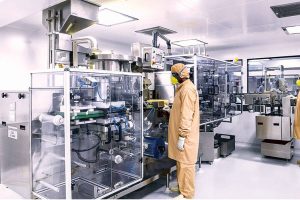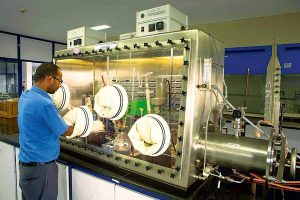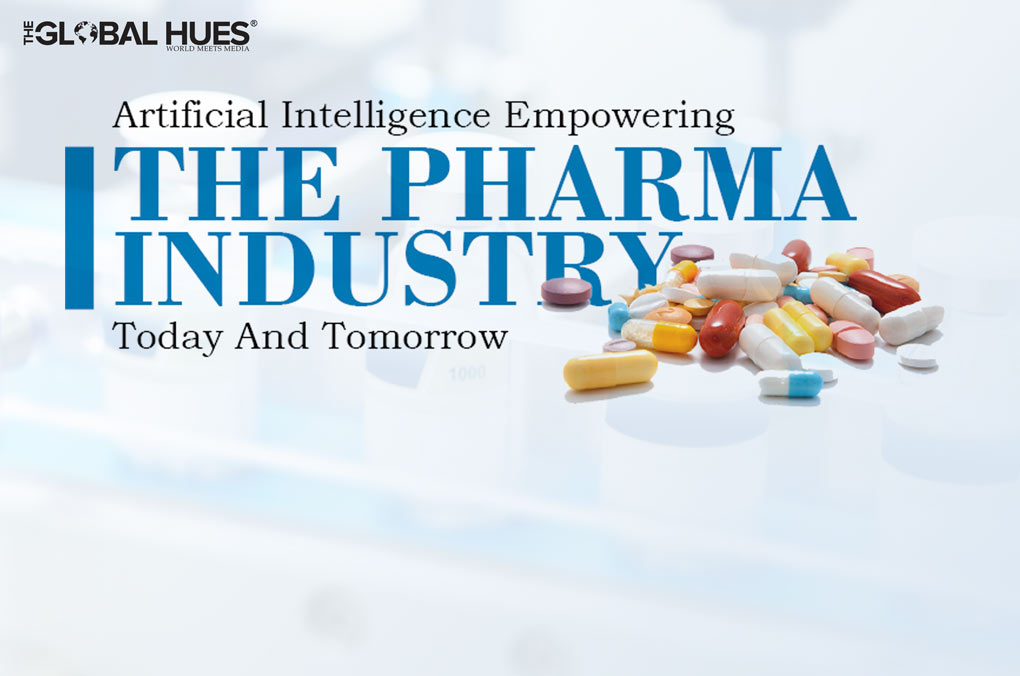The global AI in the pharma market is expected to grow from $0.91 billion in 2020 to $1.27 billion in 2021 at a compound annual growth rate (CAGR) of 39%.
Dave Waters once said, “Predicting the future isn’t magic, it’s artificial intelligence.” That’s the power of AI. Artificial intelligence is one of the fastest-growing and expanding technologies on the planet today. Because of the need of the hour, the pharmaceutical industry is ramping up its artificial intelligence use at a rate that might help the sector in ensuring faster medical treatments. In recent years, the role of AI in pharmaceuticals is increasing. AI has revolutionized how scientists combat diseases, come up with new medications and discover theories in the pharmaceutical sector in the last five years.
The global AI in the pharma market is expected to reach $5.94 billion in 2025 at a CAGR of 47%. This growth is projected due to many companies resuming their operations and adapting to the new normal caused because of the pandemic.
ROLE OF AI AND BIG DATA
Research conducted by GlobalData, a leading data and analytics company revealed that 28% of companies will be using AI and big data/analytics to optimize drug discovery and development processes in the next two years, while 32% would be relying on big data/analytics to streamline sales and marketing.
Some other key findings of the report are:
- AI and big data will play a major role in optimizing pharmaceutical drug discovery and development processes, as indicated by 24% and 25% of global healthcare industry professionals, respectively
- 23% of respondents confirmed that their companies were currently using AI to enhance drug discovery and development processes, while 28% expected to continue or start using AI in the next two years
- 27% of respondents believed that big data would play a major role in optimizing marketing and sales
- More than 30% of respondents were currently using big data in marketing and sales and expected to continue using it in the next two years
- The implementation of AI in sales and marketing is expected to achieve a bigger uptake in the next few years.
KEY AREAS WHERE AI HAS HELPED THE PHARMA INDUSTRY
Artificial intelligence is progressively being used in the biopharma sector, right from early-stage drug development to prescription treatment choices, with a predicted market volume of $10 billion by 2024, encompassing AI-based medical imaging, genomics, drug discovery, diagnostics, and personal AI assistants. Some of the prominent areas where AI has helped the pharma market are:
- Improvements in drug discovery, approval, and design
AI usage in the pharma business not only reduces the time to test a medicine but also for drug approval as well. It takes less time to reach the market thereby meeting the market demands earlier than expected. This also leads to cost reductions and lowering expenditures for patients. RNA and DNA detection can be done swiftly with the aid of AI.

-
Improvements In Drug Research And Manufacturing
Pharma companies, if use Artificial intelligence, can cut design time, enhance production reuse, reduce material waste, perform predictive maintenance, and much more. It also improves the manufacturing process of medicines not only by increased productivity but also by ensuring the completion of each activity with precision. Advanced flow measurement devices are essential, as they help in the precise monitoring of liquids. And this, along with AI analytics, helps achieve consistent quality and efficiency.
-
Ensuring Intelligent Drug Supply Chain
The supply chain of this industry is made up of many complicated procedures but AI creates solutions for this as well. AI can help with making decisions, organizing operational efficiency, and establishing a cost-effective and flourishing supply chain. AI also holds the potential to address some of the major challenges in pharmaceutical cold chain management. A study conducted by McKinsey & Company in 2013 found a severe lack of agility in the supply chains of the pharmaceutical sector. The report noted that the replenishment times from manufacturer to distribution centers averaged around 75 days for the pharma industry while only 30 days for other industries, therefore reported the need for better transparency around logistics, costs, distribution, and warehousing. Here, the role of AI comes into play. Assuring drug efficacy, patient identity and chain of custody integrated with supply chain agility are the vital factors where the role of AI comes into play for the pharmaceutical industry.
-
Transformation In Pharmacovigilance And Drug Safety
The World Health Organization (WHO) defines pharmacovigilance (PV) as “the science and activities relating to the detection, assessment, understanding, and prevention of adverse effects or any other drug-related problem.” Here, AI brings up possibilities for solving categorization and prediction issues. With the use of AI, companies can analyze Postmarketing Surveillance (PMS) data faster than before. As this will ensure quick discovery of nuanced insights from extensive batches of data, it will improve patient safety while reducing the risk among drug manufacturers.

-
Improvements In Drug Adherence And Outcomes
Medical adherence is a very important aspect for any treatment to yield results. Unfortunately, there aren’t enough resources to monitor and provide remote treatment to patients. Thankfully, AI has started gaining popularity in the field of adherence monitoring. This can be achieved through a variety of ways like the use of internet-of-things devices and centralized data collection.
-
Improvements In Regulatory Information Management
One of the roadblocks to success for the pharmaceutical industry most prominently includes the regulatory environment. To secure medical approval, pharma companies need accurate interpretation and communication inside and outside the organization. Artificial intelligence can solve this problem too. Advanced AI can offer regulatory affairs professionals with insightful data to ensure workflow enhancement. This can be ensured by evaluating current and updated federal regulations governing drug developmental procedures and methods.
FINAL WORDS
Lack of skilled professionals may cause hindrance in the growth of artificial intelligence in the pharma industry. In 2019, a famous job portal Indeed revealed that AI job postings increased 29.1 % as compared to last year but with no uncertainty due to the AI skills gap, AI-related roles decreased by 14.5% over the same time period.
So, the shortage of appropriate AI skills is seen as a major barrier to the pace of technological progress in the pharmaceutical market. 56% of senior AI professionals believe that a lack of additional, and qualified AI workers is the single most prominent hurdle to be overcome in terms of obtaining the necessary level of AI implementation beyond business operations. That is why a lack of skilled and experienced professionals may hamper the growth of Artificial intelligence in the pharma sector.
The pharmaceutical industry needs a digital transformation on an urgent basis to analyze huge volumes of health data accurately and efficiently.




